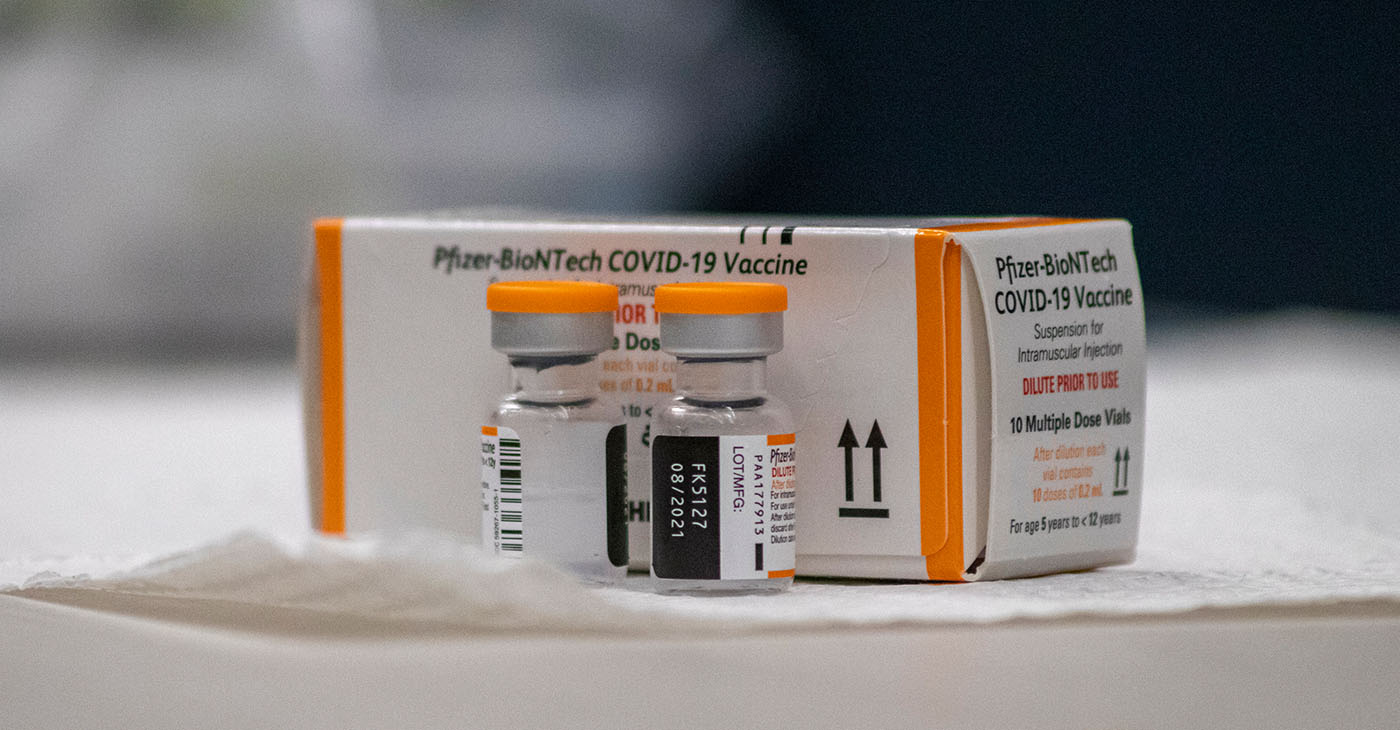Coronavirus
SEN. TIM SCOTT SOLVES ASIAN AMERICANS’ MODEL MINORITY PROBLEM
In the official GOP response to President Joe Biden’s Joint Speech to Congress last week, Scott offered up his childhood growing up with a single mother in a one-room apartment, and then looked America in the eye and said, unequivocally, “America is not a racist country.”

Asian Americans have long been hampered at times by the “Model Minority” stereotype. What’s that about? You know, how Asian Americans’ success has been used against them in that “look how good they are” way. It’s an excuse to ignore them. Here’s the thinking: as model minorities, we can all ignore them. They don’t need any government help, affirmative action, or any such handouts. They are model minorities, ergo, the subtext–Why can’t you all be like them!
But not this year!
Sen. Tim Scott (R-South Carolina) has made a gift to all Asian Americans.
We aren’t the model minority anymore.
He is.
In the official GOP response to President Joe Biden’s Joint Speech to Congress last week, Scott offered up his childhood growing up with a single mother in a one-room apartment, and then looked America in the eye and said, unequivocally, “America is not a racist country.”
He was taking away our crown of “model minority” and placing it on his own head. And tying it on with his own bootstraps.
Got to hand it to Scott. He likes to brag: “I get called Uncle Tom and the N-word by progressives, liberals.” But honestly, to say America is not a racist country is possibly a bigger lie than “Trump won last November.”
A Biden margin of victory of nearly 7 million voters debunks that lie.
It would take just one chapter of Asian American history—just the Filipino part– to refute Scott.
In an historical context, taking away Asian Americans’ “model minority” burden is quite significant.
Dropping the stereotype is important as America, after the Atlanta mass murders , finally begins to understand that we Asian Americans are beyond stereotypes. All together, Asian Americans are 23 million strong and diverse, from more than 20 countries. And we’re growing, destined to overtake the Hispanic population as the No.1 ethnic minority by 2060, according to the Pew analysis of Census data.
It’s especially important as the government looks to engage with all of its people in a new inclusive way.
It is the New America many of us in the ethnic media have been talking about for the last 20 years.
And that’s what Scott and the GOP are trying to negate that positive uplifting message of President Biden’s national address to a new America.
We’re getting a lot of history in the first hundred days of Joe Biden. In that speech, we got the precious first image of a U.S. president speaking to a joint session of Congress, flanked by a female speaker of the house, and a female vice president—a multi-racial woman of Black and Asian descent.
It’s the good history of an evolving democracy.
When Biden talked about “real opportunities in the lives of Americans,” he didn’t any of us leave us out.
“Black, white, Latino, Asian American, Native American,” Biden said, then he segued into a thank you. “Look, I also want to thank the United States Senate for voting 94-1 to pass the Covid-19 Hate Crimes Act to protect Asian American Pacific Islanders.”
Seven seconds of applause. And then to top it off, he transitioned to a mention of the Equality Act to protect transgender youth.
These were the specific and necessary moments when many of us could see ourselves. They were signs that government hasn’t forgotten who it’s governing—all Americans, of all stripes, collars, and colors. Biden’s all-encompassing economic plan covering infrastructure and families would cost anywhere up to $4 trillion.
Worth it? It is if we still want to be an America that’s of the people, by the people and for the people.
California Black Media
Gov. Newsom and Gov. DeSantis Go Head-to-Head in Nationally Televised Debate
Conservative Fox News personality Sean Hannity moderated the duel, during which the TV pundit, more than once, injected his opinion, and appeared to be providing subtle assists to DeSantis. As the debate progressed, it was clear that opinions about each topic discussed was representative of the philosophical and political chasm that divides liberal and conservative America, and a preview of campaign mudslinging that is bound to intensify as the 2024 presidential campaign ensues.

By California Black Media
In an intense, 95-minute-plus televised faceoff between California Gov. Gavin Newsom and Florida Gov. Ron DeSantis on Nov. 30, the men traded jabs and putdowns, defended their respective gubernatorial records, disagreed sharply on how to solve the country’s most pressing problems, and expressed clashing views on the performance of the Biden-Harris administration.
Conservative Fox News personality Sean Hannity moderated the duel, during which the TV pundit, more than once, injected his opinion, and appeared to be providing subtle assists to DeSantis.
As the debate progressed, it was clear that opinions about each topic discussed was representative of the philosophical and political chasm that divides liberal and conservative America, and a preview of campaign mudslinging that is bound to intensify as the 2024 presidential campaign ensues.
“I’ll tell you why I’m here,” Newsom said. “I’m here to tell the truth about the Biden-Harris record and also compare and contrast Ron DeSantis’ record and the Republican Party’s record” with that of California.
DeSantis blasted Newsom’s management of the COVID-19 crisis and criticized Newsom for prevalent crime, homelessness and deteriorating social conditions in California cities.
“You have the freedom to defecate in public in California,” DeSantis said. “You have the freedom to pitch a tent on Sunset Boulevard. You have the freedom to create a homeless encampment under a freeway and even light it on fire. They’re not the freedoms our founding fathers envisioned.”
Newsom took a jab at DeSantis’ presidential candidacy, predicting that the Florida Governor would be endorsing GOP frontrunner Donald Trump soon.
“There’s one thing we have in common,” Newsom said. “Neither of us will be the nominee for our party in 2024.
BayCityNews
FDA Updates Approval of Pfizer Booster Vaccine for Children Under 5
The U.S. Food and Drug Administration updated its approval Tuesday of the Pfizer-BioNTech booster vaccine, making it available to some children under age 5. Before this update, children under 5 were not eligible for COVID-19 booster shots. Instead, they received three doses of the regular vaccine.

By Eli Walsh
Bay City News
The U.S. Food and Drug Administration updated its approval Tuesday of the Pfizer-BioNTech booster vaccine, making it available to some children under age 5.
Before this update, children under 5 were not eligible for COVID-19 booster shots. Instead, they received three doses of the regular vaccine.
As of December 2022, children age 4 and younger who have not been vaccinated receive the omicron variant-specific booster vaccine as the third dose in their primary vaccine series, following two doses of the original Pfizer vaccine.
However, children in that age range who completed their initial vaccination series before December 2022 only received three doses of the original Pfizer vaccine, and are less protected against more infectious variants of the virus as a result.
FDA officials updated the vaccine’s emergency use authorization Tuesday to allow those children who only received the original Pfizer COVID vaccine to receive one dose of the bivalent booster if it has been at least two months since they completed their initial series.
Other children under age 5 are not eligible for the booster, although everyone age 5 and up is eligible for a booster.
“Currently available data show that vaccination remains the best defense against severe disease, hospitalization and death caused by COVID-19 across all age groups, and we encourage all eligible individuals to make sure that their vaccinations are up to date with a bivalent COVID-19 vaccine,” said Dr. Peter Marks, the director of the FDA’s Center for Biologics Evaluation and Research.
Clinical data has found that both the original Pfizer vaccine and the booster vaccine that targets the omicron subvariants BA.4 and BA.5 are safe for everyone aged 6 months and up and effective at preventing the worst outcomes of COVID infection, including serious illness and death.
COVID vaccines are available at primary care providers, retail pharmacies and some facilities operated by local health departments.
Copyright © 2023 Bay City News, Inc. All rights reserved. Republication, rebroadcast or redistribution without the express written consent of Bay City News, Inc. is prohibited. Bay City News is a 24/7 news service covering the greater Bay Area.
Bay Area
COVID-19 Response Grant Program
The City of Union City will be issuing another round of its COVID-19 Response Grant Program. The program has distributed approximately $620,000 in grant funds and forgivable loans to the community to respond to the impacts of COVID-19 and will distribute another $322,000 through this latest round of funding. The City will utilize federal Community Development Block Grant (CDBG) and CARES Act funds.

The City of Union City will be issuing another round of its COVID-19 Response Grant Program. The program has distributed approximately $620,000 in grant funds and forgivable loans to the community to respond to the impacts of COVID-19 and will distribute another $322,000 through this latest round of funding. The City will utilize federal Community Development Block Grant (CDBG) and CARES Act funds.
Grants are available through the City’s Road to Recovery Small Business Assistance Program and the Residential Rental Assistance Program. The City began accepting applications on March 6, 2023, at 9 a.m. and will begin reviewing applications (up to 50 applications for each grant opportunity) submitted on or before March 30, 2023, at 5 p.m. The program information and the online application are available on the City’s website:
https://www.unioncity.org/548/COVID-19-Response-Grant-Program
The City will be holding two informational/technical assistance meetings to support residents and businesses with their applications and respond to any questions. These meetings will be streamed via Zoom. See below for meeting information and Zoom meeting links.
Tuesday, March 14, 2023: 9 a.m. to 10 a.m.
https://unioncity-org.zoom.us/j/89061570160
Wednesday, March 15, 2023: 12 p.m. to 1 p.m.
-

 Arts and Culture3 weeks ago
Arts and Culture3 weeks agoRooted in Tradition: The Intricate History of Black Hair Braiding
-

 Bay Area4 weeks ago
Bay Area4 weeks ago“I Will Not Be Bullied,” Says Oakland Mayor Sheng Thao
-

 Bay Area2 weeks ago
Bay Area2 weeks agoPG&E Increases Rates While Bay Area Households Are Struggling to Stay Afloat
-

 Business3 weeks ago
Business3 weeks agoGov Newsom: Raising Fast Food Minimum Wage to $20 Pays Off as Jobs Multiply in Industry
-

 Activism4 weeks ago
Activism4 weeks agoOpponents of Mayor Sheng Thao Are Calling on Her to Resign Following FBI Raid
-

 Community1 week ago
Community1 week agoHundreds Come to Jehovah’s Witnesses’ Assembly Hall for Three-Day Program of ‘Good News’ in Fremont
-

 Bay Area2 weeks ago
Bay Area2 weeks agoJuneteenth Mass Shooting Suspect Charge with Multiple Counts of Felony Assault by Alameda County DA Pamela Price
-

 Activism4 weeks ago
Activism4 weeks agoOakland Coliseum Sale to AASEG: A Model for Community Development and Inclusion


















































